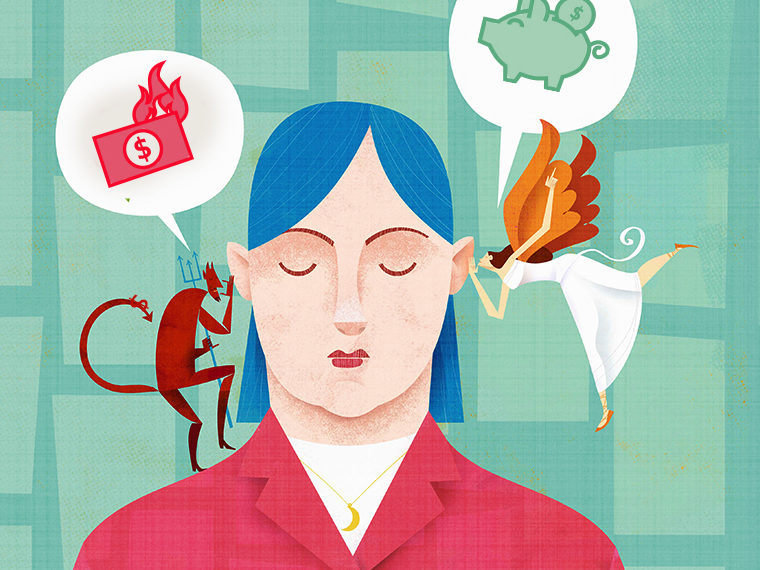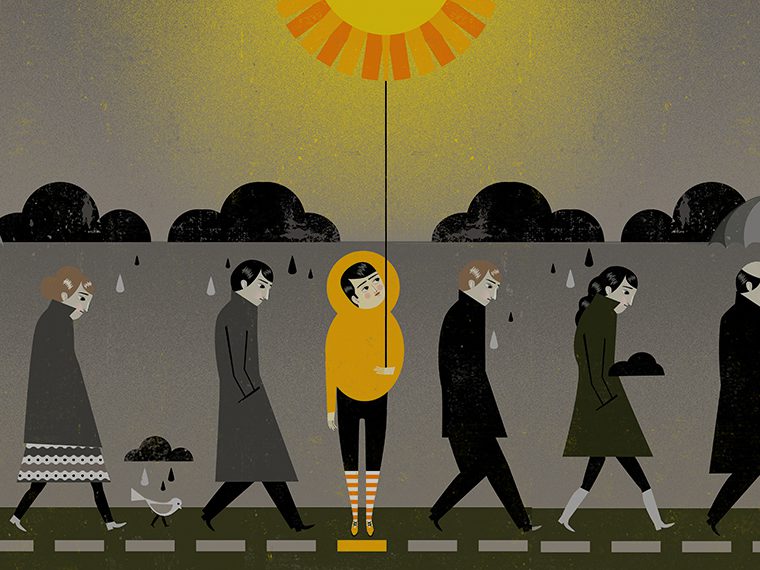Personal beliefs, especially among the less educated, often outweigh actual data
Think about the last big purchase you made. Let’s say it was a refrigerator. If you’re like most people, you don’t have a reservoir of fridge knowledge, so you searched online, read reviews, visited a couple of appliance stores. At some point, this started to seem overwhelming, so you just bought whichever refrigerator looked good enough and called it done. This is what behavioral economists call rational inattention: choosing to use limited information because the cost (time and effort) to learn more is too high.
Rational inattention posits that because people can’t possibly digest everything — what’s known as cognitive limitation — they instead choose to focus on information that helps them in the moment. Sometimes people do this optimally. Instead of tracking every single stock price, for instance, they might simply follow the Standard & Poor’s 500 index. Or when buying that refrigerator, they might just decide to go with the top-rated model in a major consumer magazine.
Other times, however, people don’t so much choose the most apparently useful information as they do ignore the information that doesn’t fit their comprehension or perspective — what’s known as irrational learning. This has consequences, of course. Especially when the decision is more monumental than buying a kitchen appliance, like voting, say.
Opt In to the Review Monthly Email Update.
But while economists and other social scientists know that individual expectations influence decision making, there’s too little real-world study of how people summarize, filter and digest information through the lens of those expectations. This matters because what people think about the economy, for instance, determines how people react to the economy. If consumers are actively worried about the economy and are thus hyper-aware of unfavorable changes in taxes and interest rates, they may react to those changes more swiftly, altering their behavior and buying habits as soon as changes are noted. Another example: If people believe housing prices will become more favorable, they’re likelier to buy or renovate homes.
A pair of studies contributes to this understanding with a look at how people arrive at different conclusions about things like inflation and housing prices. One notable finding across both studies: The more vested people are in a decision, the likelier they are to trust information that supports their preferred outcome.
Even when there’s credible contrasting data, and even if that data is put right in front of them, people give more weight to less accurate sources that echo their own beliefs and with which they have a personal connection. This is particularly true among people who are less educated and less financially literate. Sophisticated respondents, by contrast, are likelier to trust expert sources.
In the first of the studies, published in the American Economic Journal: Macroeconomics, Harvard’s Alberto Cavallo, CEDLAS-UNLP’s Guillermo Cruces and UCLA Anderson’s Ricardo Perez-Truglia surveyed 3,945 consumers in the United States and another 4,344 in Argentina. The idea was to compare how people used two types of data about inflation: 1) government and other official statistics and 2) average price changes for a random set of grocery products, with the latter serving as a proxy for the sort of information people get from personal experiences.
Cavallo, Cruces and Perez-Truglia used several types of surveys, including asking shoppers at one Buenos Aires grocery store to recall past prices of some of the items they’d just purchased. The shoppers’ grocery receipts were scanned and linked to data on past prices for those products in that store, allowing a real-time assessment of accuracy.
The researchers found, first, that people selectively pay attention to inflation based on how relevant it is in their lives. Americans, with an average inflation rate of 1.8 percent during the study period, were decidedly less interested in and knowledgeable about their country’s inflation history. Argentines, who experienced an average inflation rate of 22.5 percent, were more attuned. But, from there, as study participants were asked to assess their current inflation situation, people in both countries put more faith in their own recollections of supermarket prices (a correlation measure of 0.449) than in definably objective expert statistics (0.283).
The authors write: “These results suggest that, whenever the two signals disagree with each other, individuals are more willing to incorporate signals closer to their everyday experience.”
Cavallo, Cruces and Perez-Truglia offer a few possible reasons for this, including something called the availability heuristic, whereby people give more weight to information that’s easier to recall. In the inflation study, their own memory of product prices is easier to recall than the rate of inflation. Another, particularly revealing example, from an Israeli study cited by the authors: When asked, people report there are more words that start with the letter K than words with K as the third letter — not because there are, but because it takes a more concentrated effort to think of any words in the second category.
Rational inattention can, of course, be useful. If people pay attention only intermittently to something like inflation, they may be less likely to overreact to minor price changes. Except there is a flip side: People have terrible memories, and so they tend to think past prices were much lower than they actually were.
The other study, a working paper by the Swiss National Bank’s Andreas Fuster, Perez-Truglia, Sciences Po’s Mirko Wiederholt and Arizona State University’s Basit Zafar, gauged people’s willingness to pay for information that could help them better forecast housing prices. Here, too, there was evidence that consumers hold fast to existing views. Even when they were willing to pay for forecasting help, people, on average, weighted that information 38 percent versus 62 percent for their own prior beliefs.
For this study, researchers surveyed 1,162 heads of household as part of an annual online survey from the Federal Reserve Bank of New York. Respondents were asked to rank three sources of forecasting data in order of helpfulness, and then choose between seeing their highest-ranked piece of information or getting extra money for completing the survey. Respondents also were told they’d be eligible for an additional reward ($100 or $10, depending on their assigned group) if, at the end of the survey, their forecast fell within 1 percent of the actual national median home price. The higher the reward, the higher the value people placed on actually incorporating their highest-ranked piece of information into their forecasts. But prior beliefs remained the overriding driver behind those forecasts.
As with the inflation study, the more educated a person was, the likelier he or she was to choose expert sources. College graduates chose the most expert housing forecast 50 percent of the time, compared with non-graduates, who chose it 40 percent of the time. This tracks with the housing study finding that people whose initial forecasts were most on point also were the ones most willing to pay for information, spend time processing it and, ultimately, use it to determine their final forecasts.
Featured Faculty
-
Ricardo Perez-Truglia
Professor of Economics; Justice Elwood Lui Endowed Term Chair in Management
About the Research
Cavallo, A., Cruces, G., & Perez-Truglia, R. (2017). Inflation expectations, learning and supermarket prices: Evidence from field experiments. American Economic Journal: Macroeconomics, 9(3), 1–35., doi: 10.1257/mac.20150147
Fuster, A., Perez-Truglia, R., Wiederholt, M., & Zafar, B. (2019). Expectations with endogenous information acquisition: An experimental investigation.






